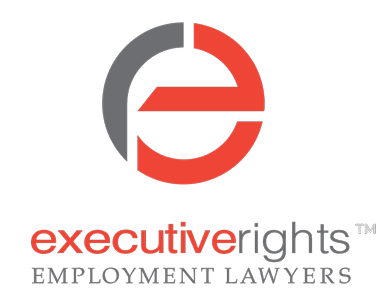The Fair Work Act 2009 – unfair dismissal and implications for executives
The Fair Work Commission – a “one-stop shop” for labour disputes
The Fair Work Act 2009 was a legislative milestone in labour law in Australia.
Under this legislation, the Fair Work Commission became the new industrial umpire. It replaced the Australian Industrial Relations Commission as well as other bodies and became a “one-stop shop” for the resolution of labour disputes.
The objective of this legislation was to replace all state legislation with respect to unfair dismissal and unfair contracts so as to create a unitary industrial relations system for corporate employers.
There was also the objective of creating a uniform set of standards known as the National Employment Standards as well as a simplified set of modern awards.
The purpose of this article is to briefly consider the unfair dismissal provisions under this 2009 enactment and how it is relevant to senior executives.
The system is complex but, in a nutshell, the unfair dismissal rules operate as follows:
What is an unfair dismissal claim?
An unfair dismissal occurs where the Fair Work Commission holds that:
a) the dismissal has occurred at the initiative of the employer;
(b) the person terminated was an employee and not an independent contractor;
(c) the termination was “harsh unjust or unreasonable”;
(d) the termination was not consistent with the Small Business Fair Dismissal Code; and
(e) it was not a case of genuine redundancy.
What are the other qualifying requirements to bring an action?
On the assumption that the dismissal was unfair, you must be able to demonstrate that
(a) you have completed a minimum period of employment of 12 months in the event that the employer employs less than 15 people; or
(b) you have completed a minimum period of six months in the event that the employer employs more than 15 people; and
(c) a (modern) award/enterprise bargaining agreement applies to you; or
(d) you earn less than the “High Income Threshold” (which is indexed in July each year), which is presently set at $167,500 per annum.
If you are able to satisfy these requirements, you are allowed into the system and can file an unfair dismissal application.
When must an Unfair Dismissal application be filed and what is the process?
Applications to the Fair Work Commission must be filed within 21 days after the day on which the termination took effect.
The parties are then requested to attend an informal conference at the offices of the Fair Work Commission with a view to trying to resolve the matter.
What remedies are available from the Fair Work Commission?
The Fair Work Commission has the power under the legislation to order reinstatement. This is usually a difficult remedy to obtain. Alternatively, it can award compensation of up to 6 months’ salary.
A six-month payout would usually only be reserved for an employee of an unusually long period of service and who was terminated under egregious circumstances.
The need for legal advice
It is important that you obtain legal advice before commencing any such application with the Fair Work Commission.
This is because the basis of the claim and the quantum of any likely damages needs to be independently assessed. Whether you have alternative causes of action also needs to be considered. This could include a discrimination claim under the State or Federal Equal Opportunity legislation or a claim for wrongful termination of your contract of employment based on the common law.
There may also be an “Adverse Action” claim under the Fair Work Act 2009. Unlike unfair dismissal claims, Adverse Action claims are not linked to whether your base salary is below the High-Income Threshold. Rather, the central question is whether you were treated adversely as a result of exercising a workplace right.
This list of grounds is not intended to be exhaustive.
Conclusion
Most private sector executives are locked out
The statutory unfair dismissal remedy has now become part of Australian folklore.
It is certainly true that access to the unfair dismissal provisions under the Fair Work Act 2009 was a great improvement in comparison to earlier legislation.
However, there are still a number of obstacles that have to be cleared before commencing such an application, not the least of which is the “High Income Threshold”.
For this reason alone, most middle to senior executives will be blocked from commencing these types of applications. The reality is that the unfair dismissal remedy will be of no relevance to most senior executives.
Some public sector executives may file applications
However, if you are employed as a senior executive in the Federal, State or local government sector or in the college/academic/health services environment, this avenue for legal redress may still be open to you. This is because you may be able to demonstrate that your terms and conditions of employment are regulated by a State or Federal industrial instrument or by a certified agreement. Each case needs to be individually assessed on its own merits.
The Law of Contract is where the battle lines are being drawn – pay close attention to contracts you sign
The effect of the Fair Work Act 2009 is that it will make no difference to your contractually- based rights where the focus is on obtaining compensation for the wrongful termination of an employment agreement.
This means that executives must continue to pay close attention to the contracts they sign. Apart from the National Employment Standards, there is no “safety net” beneath them.
The message from the Federal Government remains that, for most senior executive employees, you are on your own when it comes to remedies for the wrongful termination of your employment contract. This is especially so if you are a private sector employee.
Obtaining legal advice at the time the contract is being negotiated is therefore crucial. In addition, you may have valuable common law rights. These need to be properly evaluated.
The growing relevance of alternative remedies
You may well, of course, have remedies under the Competition and Consumer Act 2010, or Equal Opportunity legislation, (State or Federal) or a contract claim for reasonable notice. Legal actions of this nature remain unaffected by the Fair Work Act 2009 and continue to be useful avenues for redress in appropriate cases.
In addition, you may have grounds for filing and Adverse Action/General Protections claim under the Fair Work Act 2009.
If you believe you may have a valid cause of action against your employer, you will need to take legal advice to explore these issues further.
The information you obtain at this site is not, nor is it intended to be, legal advice. You should consult a lawyer for individual advice regarding your own situation.


